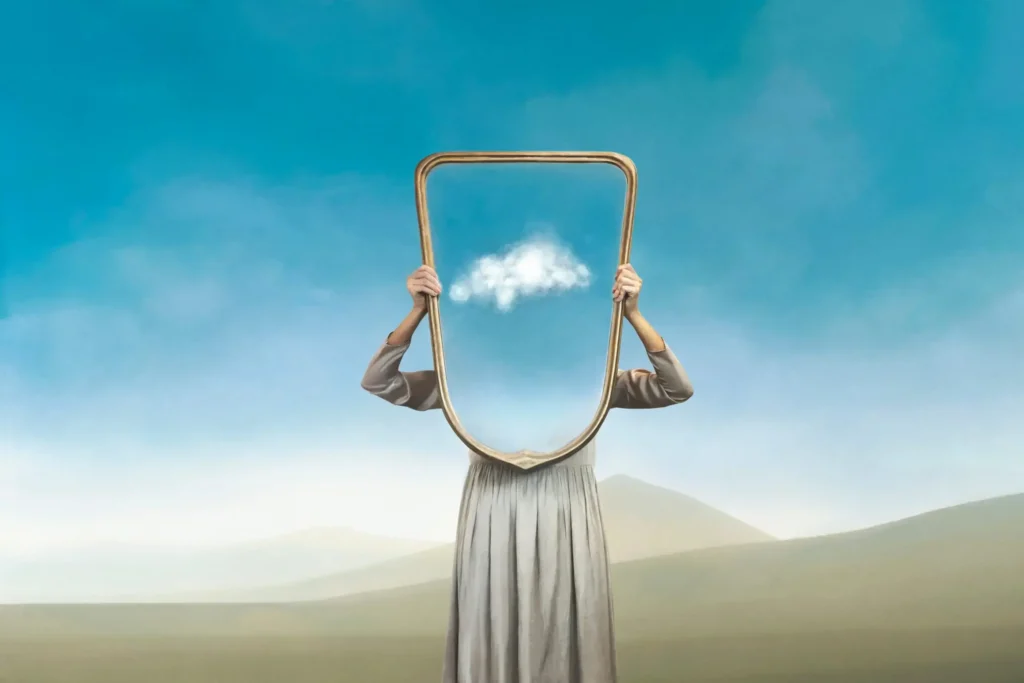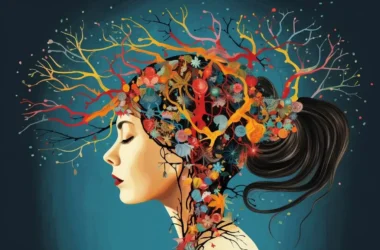As we grow, we try to achieve as much as possible but forget ourselves, which includes reflection on mental health. We plan our schedules and tick everything off our to-do lists; at the end of the day, we don't do anything for ourselves. We always need to remember to show gratitude toward our mind, health, and soul.
Our physical health gets attention as it is a visible hurdle hindering our performance. However, we disregard our mental well-being the most. Our brain and nervous system are the controllers of our body, yet we forget about them.
It is high time that we reconnect with ourselves. It will help us to recognize ourselves more clearly. The first step you need to take is to practice self-reflection.
What is Self-reflection in Mental Health?
Self-reflection is like looking into the mirror and studying your reflection. But when you relate self-reflection and mental health, we start by looking in the mirror of the mind. Self-reflection is witnessing and evaluating our cognitive, emotional, and behavioral processes. You question your behavior and feelings during self-reflection.

Why Should Self-Reflection Be Practiced?
We learn by experiences and mistakes in life. As we get curious about our experiences and choices, we change ourselves for the better. Self-reflection turns your experiences into understanding. It is something everyone needs.
Reflection on mental health encourages your level of self-awareness and consciousness about yourself. It helps you understand yourself better. It makes you aware of your beliefs, actions, and strengths. Also makes you aware of your vulnerabilities and your weak points. Through self-reflection, one can find out their unattended emotional needs.
If you practice self-reflection, you can identify the weak points and what triggers you. After that, you can work on becoming better.
Your heart won't feel heavier all the time, and you will be able to live more freely. You will find lessons and understanding in every small and big part of your life. You will feel confident, and everything will have a reason.
How Can Self-Reflection Be Practiced?
Curiosity about yourself will lead you to an amazing self-reflection journey. In childhood, we always used to ask questions to relieve our interest, and just like that, we started self-reflecting by asking ourselves questions. Questions like
- What does this make me think?
- How does it make me feel?
- How does it hold me back?
As you ask and answer these questions, be kind to yourself and throw any judgment on yourself. Be extremely raw and honest with yourself. Ensure there is a clear line between what you are feeling and what you want to feel.
Don't manipulate yourself into thinking that everything is going right. Don't dwell on perfection. Be real. Let the mirror of your mind reveal the true colors of your mental health. Feel free to dive deeper into your issues. Self-reflection in mental health helps you to recognize your problems. You might feel resistant, but stay determined and true to yourself.
If you are at a phase where you are not dealing with any serious issues or are healed from them, you want to practice self-reflection to know yourself better.
Then, you can start with the following questions:
- What am I really scared of?
- Am I holding on to something that I want most in life?
- When was the last time I made someone smile?
These questions will guide you through your mental well-being. The more you reflect, the easier you'll be to hold yourself accountable. This benefits not only you directly but also those you surround yourself with. You may inspire them to be more introspective.

Benefits of Self-Reflection on Mental Health
Self-awareness will always hold the upper hand in many aspects of life. Some of these benefits are:
- Clarity
- Self-control
- Less stress and anxiety
- Higher self-esteem and pride
- Increased emotional intelligence
- Easier time coping with challenges
- Appropriate reactions to situations
- Realize their potential and become more aligned
- Personal growth and development
- Improved performance in many fields of life.
- Improved decision making
- Increased self-acceptance
- More resilience
- Improved relationships
- Constant learning
- Increased adaptability
Self-reflection on mental health is a powerful tool to connect to your true self. It enables a more intentional life and choices and helps you tackle your challenges more clearly and purposefully. Regular practice of self-reflection can lead to greater fulfillment and a more meaningful life.
State Of Mind Needed For Self-Reflection
Having a calm mind is important for self-reflection. You can't analyze your mind if there is too much movement or chaos within your thoughts. Having a quiet mind will help you to concentrate and study yourself better. If you are someone who struggles with mental health issues, having a calm mind might be a big problem for you.
Although everyone is different and needs different ways, here are some methods to help you calm your mind and concentrate better.
- Take a few deep breaths
- Practice breath work
- Stretch your body
- Go out for a walk
- Dance like nobody's watching
- Journal, write all your thoughts
- Meditate
- Pray
- Draw and colour
- Bake your favourite dish
- Have your comfort meal
Doing such things will help your mind to relax from all the stress. Having a calm state of mind will improve your self-reflection methods.

Conclusion
It is important to note that self-reflection is not a task that you do. It is a form of self-love, self-expression, and communication with yourself. Don't indulge in it; take it as a light, fun activity to relax and do better. It will take a lot of time to get better.
To improve your mental health, ensure you don't give up midway and stay strong and patient. Always remember to be kind and gentle to yourself.
FAQs
1. What is the power of self-reflection?
Self-reflection is the thoughtful process of introspection that allows you to examine and evaluate your thoughts, emotions, and experiences with a clearer vision and pure intention of self-awareness.
2. Can self-reflection improve mental health?
Self-reflection plays a crucial role in supporting mental health as it can regulate and manage your emotions. Reflecting on stress triggers empowers your problem-solving skills and decision-making abilities. It helps you adopt a positive self-image that increases your self-esteem.
3. Why is mental health an important reflection?
Our mental and emotional health is an indicator of our overall wellness. Mental disorder conditions increase the risk for various chronic diseases like diabetes, heart disease, and stroke. Until you are mentally fit, you cannot be physically fit.
4. Why is reflection important in life?
Self-reflection progresses us from just experiencing to understanding our actions and thoughts. It enhances the level of self-awareness and brings consciousness to our practice. Also, it enables identifying areas for improvement and flaws and evaluating strengths.









